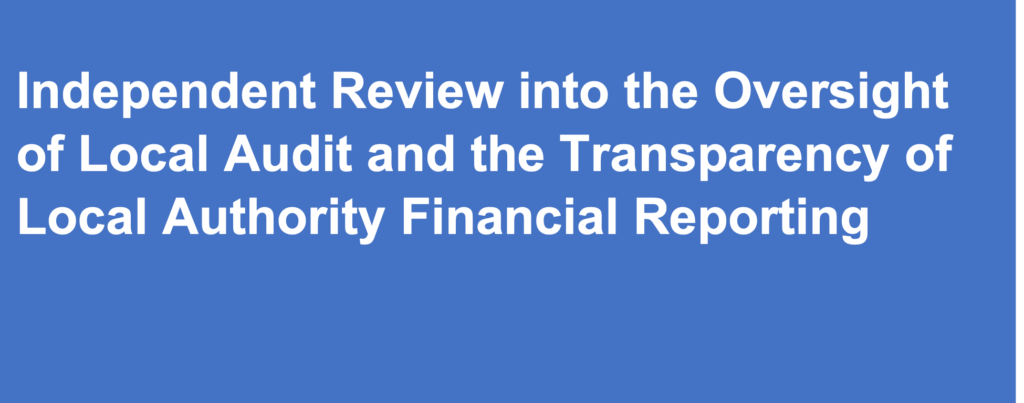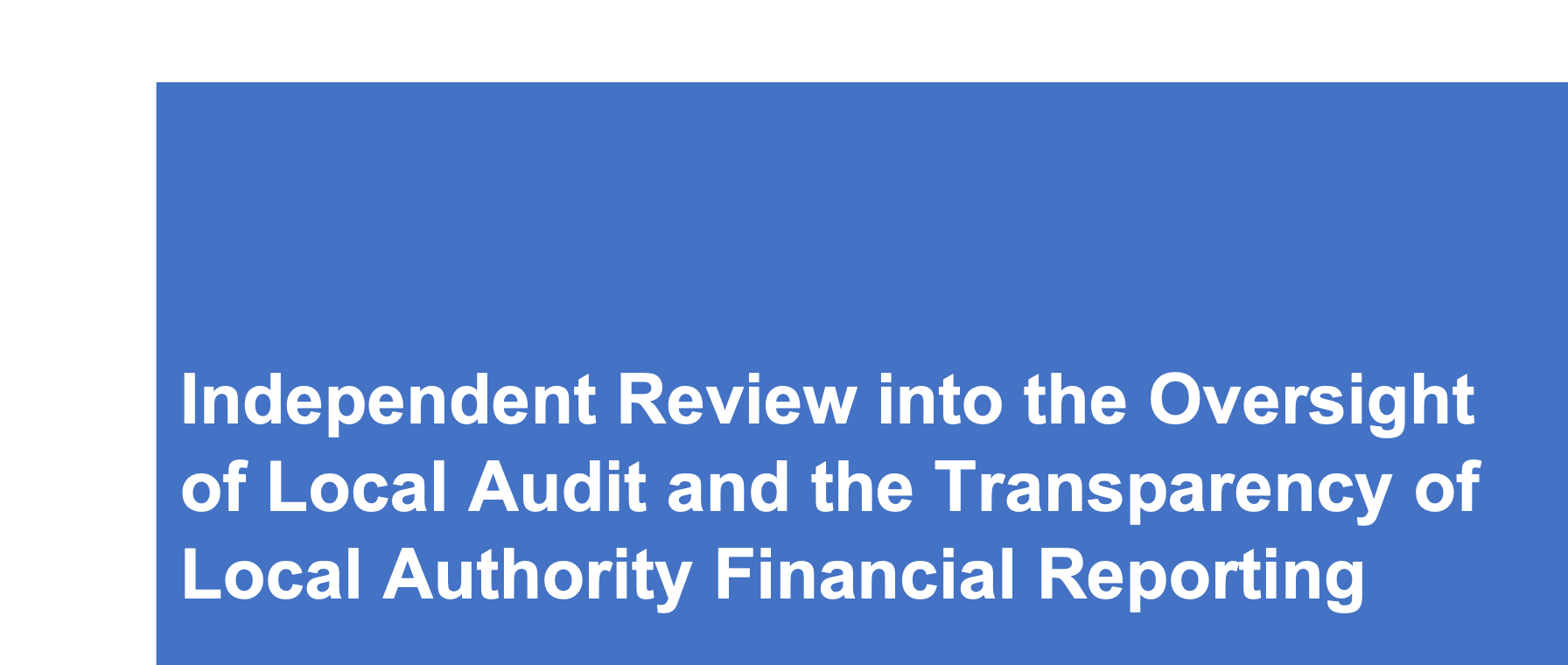The Redmond Review has made a series of recommendations for improving local government audit. Stephen Sheen argues it leaves many questions unaswered.

The report of the Redmond Review into the Oversight of Local Audit and the Transparency of Local Authority Financial Reporting was published on 8 September.
Its headline proposal is for the creation of a new regulator, the Office of Local Audit and Regulation to oversee local audit work, which will undertake the registering firms, the award and management of contracts and review of auditor performance. The involvement of PSAA, ICAEW, the FRC and the NAO in the framework would come to an end.
There are proposals for strengthening governance arrangements, including extending the contact between members and senior officers and the external auditor, and reserving a place on the audit committee for an expert and experienced independent member. Internal audit is also recognised as a key support for external audit.
Backing is given to moving the target date for publication of the audited statement of accounts from 31 July back to 30 September. This should allow firms more scope to resource audits effectively and give audit teams more experience. But the proposals for other acknowledged problems of capability, capacity and quality appear restricted to giving more money to the auditors or (in the worst case) taking it back from them in sanctions.
The review endorses the changes to value for money auditing contained in the NAO’s 2020 Code of Audit Practice (to apply from the 2020/21 financial year). This involves moving away from the binary qualified/unqualified opinion to providing commentary on financial sustainability, governance and improving economy/efficiency/effectiveness. There are musings on how to maximise assurance about resilience.
The main proposal in relation to financial reporting is for an audited statement of service information and costs to sit alongside the statement of accounts. The illustrations provided with the report suggest that this will be largely concerned with budget outturn, with an analysis of the adequacy of reserves.
Contradiction
So, where does this get us? Not very far.
In the short-term, auditors are struggling to deliver against contracts that they signed up to only two years ago, particularly in terms of providing authorities with the well-stocked and qualified audit team that they have a right to expect, even with the deferred timetable for COVID-19. These are miserable times for both accounts preparers and junior auditors.
There is no solution in the report to the contradiction that in these pressured times auditors are carrying out substantial amounts of work that isn’t justified by auditing standards.
Some audit firms are cited as agreeing that they are carrying out excessive work on asset and pension valuations but explain that this attention is “… important in the context of securing a positive assessment from the FRC quality assurance processes …”. It’s as if local audit is primarily an opportunity for firms to show how tough they can be, with authorities paying for the undue privilege.
The FRC’s response in the report is apparently that they focus on asset and pension valuations because of the requirements of the Accounting Code. But the code has always made clear, with its five year rule and encouragement not to revalue plant and equipment, the relative weight which is to be given to these numbers.
If this contradiction between under-resourcing and over-auditing is not balanced very quickly, it is possible that local audit will break irreparably before the Office of Local Audit and Regulation can ride to the rescue.
First principles
For the longer term, it is striking that the review report has little first principles thinking. What importance should the financial statements have for public accountability? What is the public demand for assurance and how can audit match this most effectively? Is the model of private sector provision of audit appropriate?
The report presumes that the acme of accountability is audited financial statements. But is this really what is needed in local government? Things move so fast that by the time the accounts come to be published an authority is already up to six months in to spending its next budget, with each step the subject of public debate.
Where is the appetite for looking back at the past? For instance, what is the interest in knowing that an authority spent £50m on adult social care last year when it has already agreed to spend £55m this year and regularly discussed in committee the challenges of doing so?
It is a reasonable conclusion that no-one reads the audited accounts because they don’t need to – their information needs relating to authority spending are largely already provided for on a more timely and focused basis.
An acknowledgement of this would allow a much clearer specification of what the role of accounts and audit should be. A final summing up showing that the presumptions on which the current budget has progressed are sound; a pause to reflect on the deeper truths about sustainability that are forgotten when cash is king; a little information not available through freedom of information requests; and a confirmation that the auditors are suitably impressed by the ability of an authority’s systems to deliver robust financial statements.
We should also put little weight on the myth that people do not read the accounts because they are too complex. I am old enough to remember a time when the financial statements were not complex, but never a time when the readership was anything other than hypothetical.
My proposals supplementary to the review would be for:
- A pride in the truths that proper accounting practices reveal. The government might find cash accounting acceptable for the fiscal purpose of setting council tax each year, but a proper judgement of financial sustainability requires knowledge of the value of the assets that an authority holds (and the extent to which this value is being maintained) and the liabilities it has obligations for. It is an astonishing statement in the report that the balance sheet does not show the true financial position of an authority, when this is precisely what we have been working for over the last 20 years. Capital accounting and pensions accounting have a fundamental role to play in demonstrating circumstances beyond the bank balance, although there is much work to be done to ensure that they make their contribution with the minimum of effort.
- A recognition that authorities are complex organisations and that telling their story will necessarily involve some complexity. The accountant’s job should be to guide readers skilfully through the thicket as painlessly as possible (cheered along by the auditors), rather than pretend it doesn’t exist.
- Promoting the narrative statement instead of the proposed statement of service information and costs. Is there any evidence of demand for such a statement? My expectation would be that a forward-looking exposition would be much more helpful, projecting how the financial position summarised in the financial statements empowers or constrains future plans, with the necessary expression of aspirations and challenges making it incapable of being audited comprehensively.
- Consideration as to whether there might be alternatives to the 100% private sector provision of audit. My view remains that the bigger loss has not been the Audit Commission but the District Audit Service, with its ethos of public service and a dedication to local government that the firms will never come close to matching. We really should be thinking harder about what was lost when the DAS was dismantled.
Stephen Sheen is the managing director of Ichabod’s Industries, a consultancy providing a technical accounting support service to local authorities. He was previously the senior technical manager for local government audit at PricewaterhouseCoopers.













